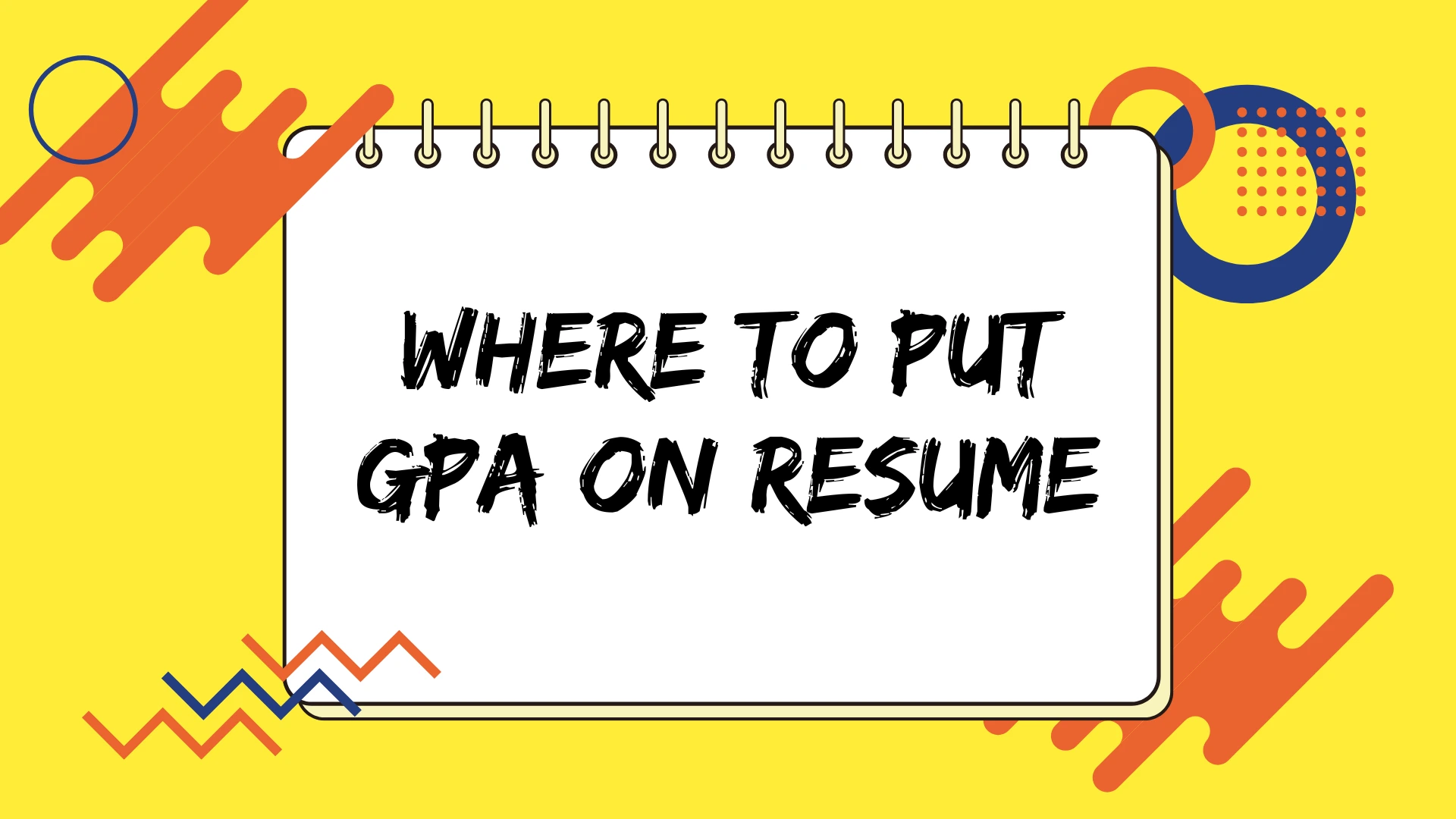Where to Put Gpa on Resume

Including your Grade Point Average (GPA) on your resume can be a strategic move, especially for recent graduates or those with limited professional experience. However, it’s essential to understand when and how to include it to make the most impact. This guide will walk you through the best practices for listing your GPA, when to include or omit it, and alternative ways to showcase your academic achievements.
Understanding the Importance of GPA on a Resume
Your GPA is a numerical representation of your academic performance and can be an indicator of your work ethic, ability to meet deadlines, and discipline in handling academic responsibilities. Employers may consider GPA when hiring for entry-level positions, especially in competitive industries where academic performance is valued. However, GPA is just one aspect of your resume, and it should be included only when it enhances your overall application.
When to Include Your GPA
1. Recent Graduates
If you are a recent graduate with little to no professional experience, including your GPA can help highlight your academic achievements. Employers in industries like finance, consulting, and engineering may pay closer attention to GPA when evaluating candidates fresh out of college.
2. High GPA
A GPA of 3.5 or above is generally considered strong and can make your resume stand out. It demonstrates a commitment to academic excellence and consistent performance. If your GPA falls within this range, it is a good idea to include it in your resume, particularly if you are applying to a role where academic achievements are valued.
3. Job Requirements
Certain employers and job postings specifically ask for a candidate’s GPA. If this is the case, you should always include it. Additionally, some internship programs and graduate school applications require GPA disclosure as part of their selection process.
When to Omit Your GPA
1. Extensive Professional Experience
If you have several years of relevant work experience, your professional achievements, skills, and work history become far more critical than your GPA. Employers will be more interested in your practical experience and results rather than your academic scores.
2. Low GPA
If your GPA is below 3.0, it’s generally advisable to leave it off your resume unless specifically requested. Instead, focus on other aspects of your education and experience, such as coursework, projects, or relevant certifications.
3. Career Change or Unrelated Degree
If you are shifting careers and your degree is not directly relevant to the new industry, your GPA might not add significant value. In such cases, emphasize your transferable skills, certifications, and experience rather than academic performance.
How to Include Your GPA on Your Resume
Placement
The Education section of your resume is the ideal place to list your GPA. It should appear directly below your degree and university information.
Example Format:
Bachelor of Science in Business Administration
XYZ University, Graduated: 2023
GPA: 3.8/4.0
Formatting
Make sure your GPA is formatted consistently with the rest of your resume. You can display it in one of the following ways:
- GPA: 3.9/4.0
- Cumulative GPA: 3.7/4.0
- Major GPA: 3.9/4.0 (if your major GPA is significantly higher than your overall GPA, you can specify it)
If your university used a different grading scale, it’s a good idea to clarify it for potential employers.
Additional Academic Achievements
If you have additional honors or distinctions, such as:
- Dean’s List
- Magna Cum Laude or Summa Cum Laude
- Scholarships or Academic Awards
It’s beneficial to include them along with your GPA to present a fuller picture of your academic accomplishments.
Example Format:
Bachelor of Science in Computer Science
ABC University, Graduated: 2022
GPA: 3.9/4.0 | Dean’s List (2020-2022), Academic Excellence Award
Alternatives to Including Your GPA
If you choose not to include your GPA, consider these alternative ways to highlight your educational background and achievements:
1. Relevant Coursework
If you completed courses that align with the job you are applying for, list them under your education section.
Example:
Relevant Coursework: Data Structures, Machine Learning, Advanced Algorithms
2. Certifications and Accomplishments
Highlight any additional certifications or training relevant to your field, such as coding bootcamps, online courses, or industry-specific certifications.
3. Extracurricular Activities and Leadership Roles
Participation in student organizations, volunteer work, or leadership roles can showcase your soft skills and ability to work in team environments.
Common Mistakes to Avoid
1. Overemphasizing GPA
While GPA is important, it should not be the primary focus of your resume. Ensure that your resume provides a balanced view of your skills, work experience, and achievements.
2. Dishonesty
Never inflate or misrepresent your GPA. Many employers conduct background checks, and dishonesty can damage your credibility and chances of securing the job.
3. Including a Low GPA
If your GPA is not impressive, it’s best to leave it out and focus on other aspects of your resume that demonstrate your skills and competencies.
Conclusion
Deciding whether to include your GPA on your resume depends on your individual circumstances. If you are a recent graduate with a high GPA, it can be a valuable addition that strengthens your application. However, if you have substantial work experience or a low GPA, it’s best to focus on other aspects of your education and experience. By carefully formatting your resume and emphasizing your most relevant qualifications, you can create a strong, compelling document that appeals to potential employers.





